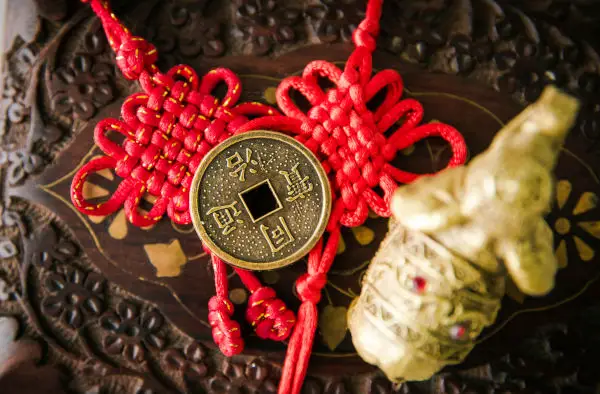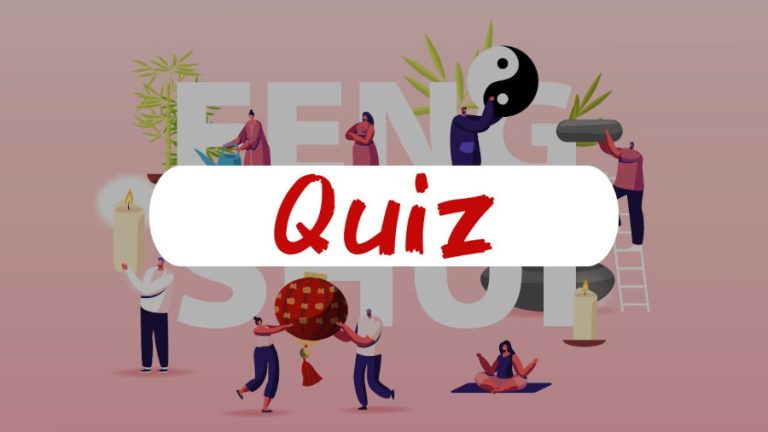Although luck is a relative concept, people use feng shui to try to increase their luck. If you ask ten different individuals what it means to be lucky, you will receive nine, or maybe ten, different replies.
Someone who lives a wealthy lifestyle may feel unfortunate if he finds himself forced to go without a car. Someone living in a less developed nation, on the other hand, may consider him quite fortunate, even without a car.
On the other side, you may discover that many individuals in poorer nations are spiritually luckier than you are. Your priorities and circumstances—which change as we get older and go through life—determine it.
However you feel about luck, do you know where it comes from or how it manifests? What is the effect of feng shui, and why does it appear to work for some people but not for others?
So let’s find out the real principles behind bringing luck to your home or business and the role of feng shui in it.
The Problem of Feng shui
First, we need to address a problem. People think that a small (or big) change in their feng shui will make a big difference in their luck. They may anticipate their fortunes changing dramatically in the following 24 hours.
I’m sorry to disappoint you if you had such expectations. That is not how it works. Feng shui doesn’t work miracles.
Con artists have abused the practice of feng shui with these unrealistic expectations. They use strategies similar to the get-rich-quick schemes that are so popular these days.
Because of this, feng shui sometimes gets a bad name. Furthermore, this serves as a foundation for “disbelievers” to dismiss the use of feng shui. After all, how can a person’s luck change due to simple furniture arrangements?
Putting “Luck” and “Feng shui” in a Context
According to Chinese culture, there are various variables that impact our total existence. Fate, luck, and feng shui are the most important factors. Other crucial life aspects (that are rarely discussed) include doing good deeds, education level, personal reputation, and physical appearance. Let’s take a look at the most influential among them.
- Fate: Maybe fate isn’t the right word, but it describes predetermined occurrences that are absolutely beyond our control. For example, you have no influence over where, when, or whose family you were born into.
- Luck: It determines how events in your life play out. There will be times when luck is on your side and circumstances around you work in your favor. Other times, you may encounter occurrences that cause you to have continual headaches, anxieties, and diversions, which can affect other parts of your life.
- Feng Shui: This is the third-most powerful impact in your life. The feng shui of your home has a significant impact on your and your family’s mental and physical well-being. A healthy feng shui house calms and feeds your spirit while removing stress and distractions. Feng shui has the potential to impact your luck but has no effect on your fate.
Luck is not a one-time occurrence (like winning the lottery, for example), but rather a string of experiences that can span several years.
The concept of luck is broad. It covers a wide range of topics, such as money, wealth, health, and relationships. Furthermore, everyone’s luck is not the same. Some individuals are fortunate in love, while others are fortunate in their careers.
Luck is not permanent; it usually comes and goes. This is also why everyone’s luck is different.
Related Reading: “Sanxing” – The Trinity of Luck and Happiness in Chinese Culture and Feng Shui – Opens in new tab

Feng Shui and Luck are Two Different Things
So, we could say that luck is a generic phrase used to explain all of the occurrences we experience in our lives. Feng shui and luck are distinct concepts. The first is your environment and surroundings, and the second is you. Both have an impact on how we live our lives.
As mentioned earlier, “luck” has little to do with feng shui. They are more about a person’s luck, which varies from person to person. Usually, a person’s luck goes up and down over the course of his life.
In some ways, the sort of luck that will come into your life is predetermined. However, you have the power to change your luck. And one way you can do this that is within your control is to improve the feng shui of your home.
There is No “Something for Nothing”
You may have heard the expression, there is no such thing as “something for nothing”. The same is true for feng shui. Luck does not appear out of nowhere.
Positive action is required for a positive outcome; thus, doing nice deeds is the first step in attracting good fortune. That positive action plants a seed, which will grow into a favorable outcome when the correct conditions are met. Then it is up to you to grasp the chance that presents itself.
Feng shui creates cooperative circumstances for good fortune to arise. It is the same concept as the hermetic law of “Cause and Effect.”
As a result, feng shui accounts for just one-third of your luck.
- The first third entails establishing the causal seed through positive behavior.
- The second third uses feng shui to make the seed mature.
- The last third is about recognizing and grabbing the opportunity that has been created.
In the same manner, negative behaviors plant seeds for negative outcomes, and negative energy in the environment allows those seeds to develop, resulting in poor luck. This is why feng shui is so important for the sort of luck we experience in life and why some of our homes and enterprises are more fortunate than others.
Related reading: How to Attract Wealth and Prosperity in Your Home Using Feng Shui–Opens in new tab
Creating Good Luck
In general, having good luck indicates that a lot of things in your life are going as planned. A better way to put it is “smooth sailing,” when there are no challenges or barriers complicating your life. Even if you run into little issues, they are immediately solved without escalation.
Good intentions are necessary before you can attract good luck. Better results are achieved with better intentions. So, for example, if you give money to a charity in the hope that it will help their cause, that is a better incentive than giving it for tax exemption. Although both behaviors are beneficial, the former can be made significantly more so by the intention. The more selflessness, the better.
Or, the desire to protect oneself should not be motivated by fear but rather by the knowledge that there are many different types of energies present, some of which are best kept outside one’s own energy sphere.
Each sort of luck has a cause, whether it be riches, health, relationship luck, or mentor assistance. For example, generosity is the source of prosperity.
Don’t worry if you can’t afford to be generous with money; you may be generous with your time, love, and support. The more you give, the more seeds of riches are planted. The greater the good intention, the more seeds are produced. As they mature, you may generate a flow of money that will benefit many people while also producing new wealth seeds.
The harmonious energy, “Qi,” is the foundation of Feng Shui. The objective is to absorb and surround oneself with this positive energy. When you are more careful and conscious about your habits, your decor, and your personal feng shui, you start to attract and build this good energy, which in turn brings you good luck.
According to Buddhism, we have all had many former incarnations in which we may have had the opportunity to plant beneficial seeds. Such seeds are passed down from generation to generation. This is why even the most stingy person’s money luck may bloom, and why individuals who conduct negatively, in general, might appear to have excellent luck; they still retain great luck from earlier lifetimes.
The issue for them is that they are depleting their seed reserves and will run out one day. Of course, this is a Buddhist viewpoint, and you are free to adopt or reject it. The idea is that feng shui works independently of your philosophical views, so whether you are religious, atheist, or agnostic, you may reap the advantages.
Related reading: Feng Shui Tips for Good Luck: Simple Practices for Big Results – Opens in new tab

Managing “Bad” Luck
In contrast to good luck, poor luck occurs when a series of occurrences complicate your life. For example, you might have finally gotten a better job, but then you had to move because of something out of your control, which meant you had to quit that job.
We are generally focused on creating “good” luck in feng shui. But sometimes “bad” luck isn’t always a bad thing. Adversity is often what helps us grow.
Nonetheless, there is a silver lining in every cloud. It’s vital to avoid being overly preoccupied with feng shui because if you do, you can start blaming your surroundings for everything that goes wrong and fail to see the “silver lining” that can be found in any situation.
Feng shui is never perfect. It is difficult to design the ideal home. Every structure has certain flaws, and it is hard to correct all of them using feng shui.
We can only attempt to reduce them. Life’s issues can be resolved in a variety of ways. Obviously, the solutions that provide the most benefit while causing the least harm are the best, and many philosophies and belief systems may assist you in understanding how to attain them.
Related Reading: Eighteen Things that Bring Luck to Your Home According to Feng Shui–Opens in new tab
How Feng Shui Influences Your “Luck”
In short, feng shui has the power to affect your luck in both good and bad ways. For example, if you were successful in your business and made your first million in three years, good feng shui could enhance your luck so that you make two million instead of one. Or it can help you make the same amount in two years.
On the flip side, bad feng shui reduces your luck. So, in the previous example, bad feng shui could reduce or delay your luck, which could lead to less money, a longer period of time, or even worse, block your success.
Feng shui may affect your luck, and luck might come to you in unexpected ways. One thing is certain: Even though feng shui can affect your luck, its effects usually don’t happen right away.
So don’t anticipate a water feature in your wealth area getting you a raise or promotion at work the next day. To be clear, let me say it again. Feng shui is not capable of performing miracles.

Taking Advantage of Good Luck
When the chance arises, you must grasp it and make it work for you. Opportunities may present themselves, but if you are hesitant or inattentive, they will pass you by.
Opportunities frequently present themselves, but we fail to see them because we are so fixed in our ways that we believe they are beyond our competence or abilities. We can only fully benefit if we are willing to think “outside the box.” We must be willing to think beyond the box.
Many additional elements influence our capacity to fully capitalize on our good fortune, including our physical health, self-confidence, mental stability, and overall level of knowledge.
It appears that when we enhance these factors, our “luck” improves. In reality, we are simply better at seizing opportunities when they arise.
🍀 Our “Feng Shui Master” app is your trusted companion, offering a useful guide to implementing Feng Shui principles. Try it now!
Influences of the Environment
Environmental factors have a significant impact on the conditions for your luck to manifest. Some are way more clear than others. It is apparent that our physical environment has a significant impact on our lives.
Noise, weather and temperature, industrial pollutants, and general topography and geology all have an impact on our overall health. The presence of a big physical feature, such as a great mountain or volcano, for example, might even inspire a more spiritual outlook on life.
The effect of the absence or presence of clutter is also common sense. A messy environment is the outcome of a cluttered or thoughtless mind, not its source. When you organize your space, you are bringing order and positivity into your surroundings, which must have a favorable impact on the mind and your capacity to seize opportunities as they present themselves.
People who live close to nature are most affected by wind and water. In fact, feng means “wind” and shui means “water.” A strong wind can give you a lot of energy or wear you out and make you feel uneasy. The water has great power, and simply looking at it may transform our attitude. Water is essential to life, and we all appreciate its existence, yet it may also be harmful.

How to Find Out If Feng Shui Really Works
How can we tell whether feng shui has influenced our luck? We have a broad concept of our situation and whether it is continuously improving or not. Sometimes it seems as though there is some mysterious barrier standing in our way of accomplishing what we expect.
When you employ feng shui, the obstruction is eliminated or another unexpected benefit occurs. Because the impact might be modest or concealed, you may not always notice the potential advantage right away. Because of a tendency or habit to keep searching for opportunities elsewhere, you can even completely miss them.
Occasionally, though, the difference is undeniable. Some water features have the potential to provide unexpected income in as little as nine days. Normally, a result would be expected within a few months.
Conclusion
Finally, luck is a subjective and multidimensional concept that differs from one individual to the next. It is a continual set of events that can change over time, rather than a one-time occurrence. Fate, luck, and feng shui are all intertwined variables that influence our lives.
Recognizing how human actions and intentions, as well as environmental factors, affect luck is necessary to comprehend the relationship between feng shui and luck. Positive activities, such as acts of compassion and charity, can sow the seeds of good fortune, which can appear as financial success, improved relationships, or general well-being. Negative actions and circumstances can also lead to bad luck.
It is critical to recognize that good fortune does not arrive without work or intention. Achieving positive results calls for positive actions, just as there is no such thing as “something for nothing.” While feng shui may help establish favorable conditions for luck, it is ultimately up to individuals to notice and capitalize on the possibilities that emerge. To do this, one must be flexible, open-minded, and prepared to stretch themselves.
When properly understood, feng shui may help to create a good environment and promote positive energy. However, it is critical to approach feng shui with realistic expectations and knowledge of its limitations. Luck is the result of a complicated interaction of elements such as human acts, intentions, and external events. Individuals may boost their chances of having good luck in their lives by adopting positive behaviors, establishing a favorable environment, and being open to possibilities.
Want to learn more about Feng Shui? Take a look at these Courses and Books – Aff.link
Stay in Touch
 Join our newsletter by using the forms on this website or click here!
Join our newsletter by using the forms on this website or click here! Follow us on Google News
Follow us on Google News Follow us on Facebook
Follow us on Facebook
Feature Image from Depositphotos





